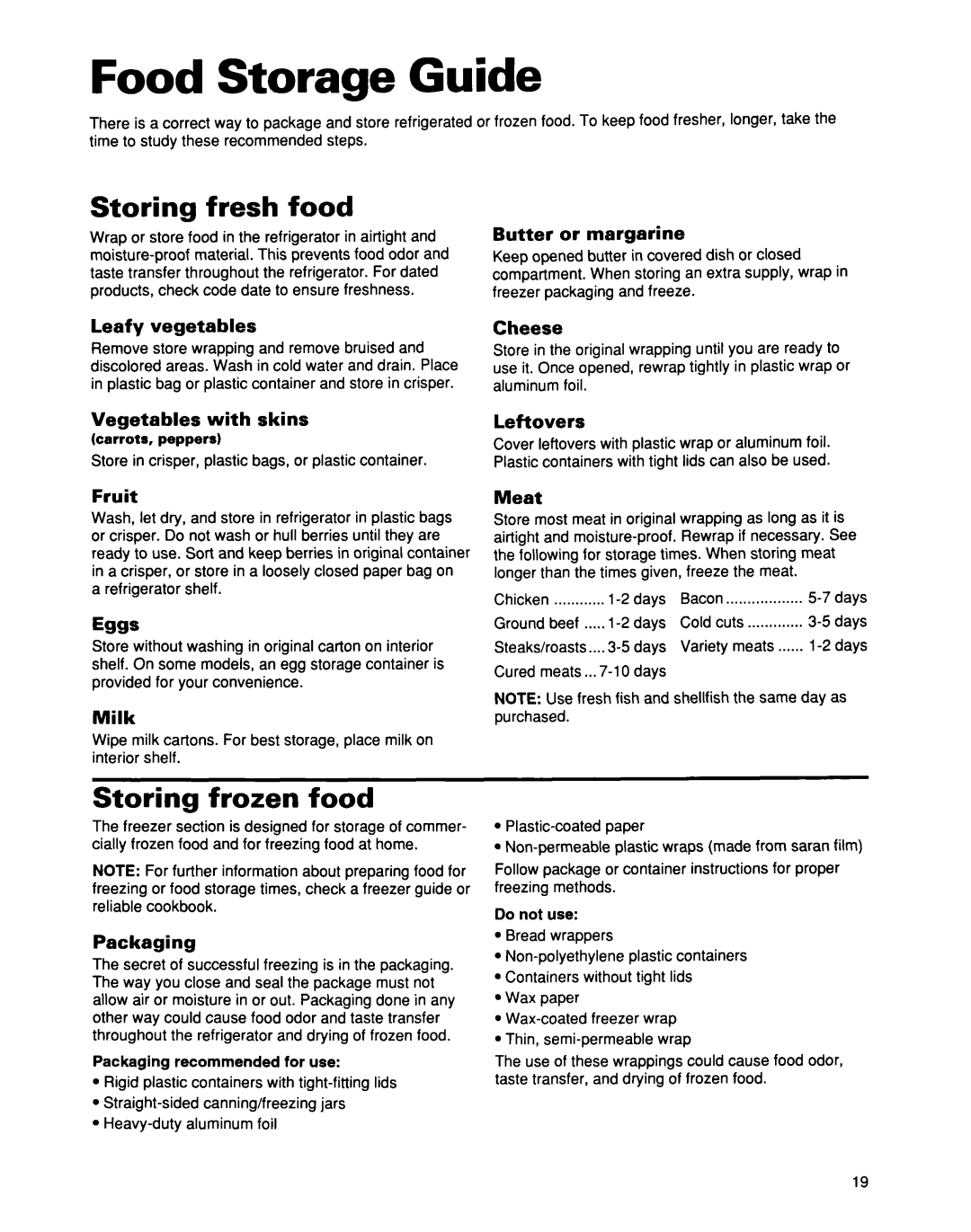
Food Storage Guide
There is a correct way to package and store refrigerated or frozen food. To keep food fresher, longer, take the time to study these recommended steps.
Storing fresh food
Wrap or store food in the refrigerator in airtight and
Butter or margarine
Keep opened butter in covered dish or closed compartment. When storing an extra supply, wrap in freezer packaging and freeze.
Leafy vegetables
Remove store wrapping and remove bruised and discolored areas. Wash in cold water and drain. Place in plastic bag or plastic container and store in crisper.
Vegetables with skins
(carrots, peppers)
Store in crisper, plastic bags, or plastic container.
Cheese
Store in the original wrapping until you are ready to use it. Once opened, rewrap tightly in plastic wrap or aluminum foil.
Leftovers
Cover leftovers with plastic wrap or aluminum foil. Plastic containers with tight lids can also be used.
Fruit
Wash, let dry, and store in refrigerator in plastic bags or crisper. Do not wash or hull berries until they are ready to use. Sort and keep berries in original container in a crisper, or store in a loosely closed paper bag on a refrigerator shelf.
Eggs
Store without washing in original carton on interior shelf. On some models, an egg storage container is provided for your convenience.
Milk
Wipe milk cartons. For best storage, place milk on interior shelf.
Meat
Store most meat in original wrapping as long as it is airtight and
Chicken ............
Steaks/roasts.... | Variety meats | ||
Cured meats ... |
|
|
NOTE: Use fresh fish and shellfish the same day as purchased.
Storing frozen food
The freezer section is designed for storage of commer- cially frozen food and for freezing food at home.
NOTE: For further information about preparing food for freezing or food storage times, check a freezer guide or reliable cookbook.
Packaging
The secret of successful freezing is in the packaging. The way you close and seal the package must not allow air or moisture in or out. Packaging done in any other way could cause food odor and taste transfer throughout the refrigerator and drying of frozen food.
Packaging recommended for use:
lRigid plastic containers with
l
l
.
Follow package or container instructions for proper freezing methods.
Do not use:
lBread wrappers
l
lContainers without tight lids l Wax paper
l
l Thin,
The use of these wrappings could cause food odor, taste transfer, and drying of frozen food.
19
